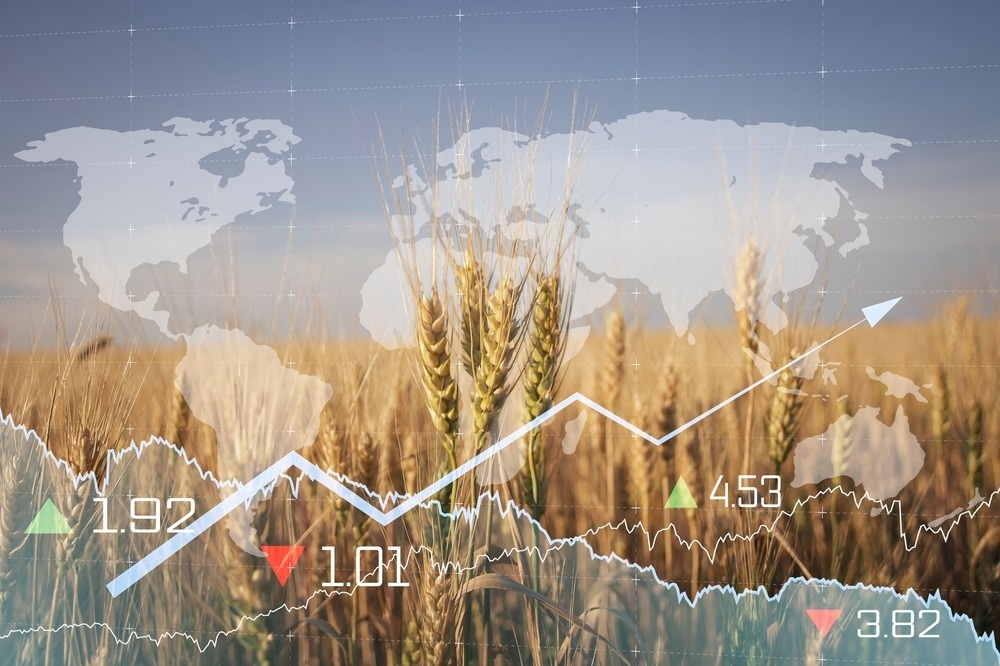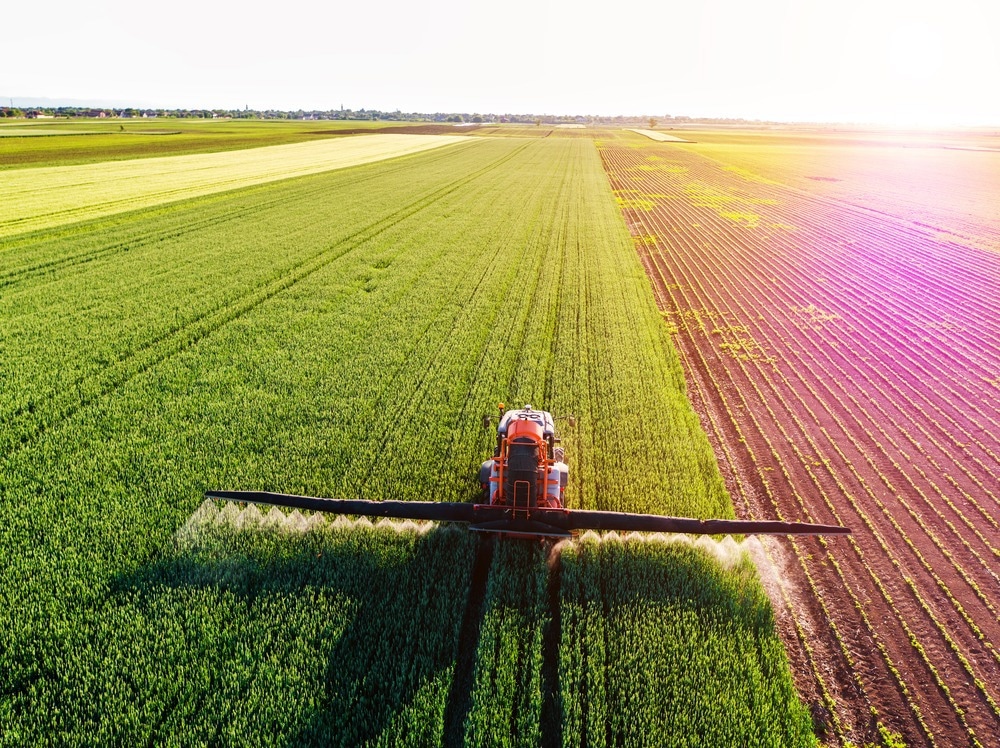Agricultural science is a discipline that incorporates knowledge and experts from multiple sciences, blending together the fields of biology, economics, social sciences, biotechnology, sensor technology, artificial intelligence, cloud computing, and more. Everything from soil and crop cultivation to fiber production and the food we eat relies on agricultural science.
Here, we discuss the applications of agricultural science along with its recent developments. We also assess the current global market and predict how the sector will evolve in the future.
Application Areas of Agricultural Science
The ultimate goal of agricultural science is to study the processes that support agricultural practices to enhance crop production quality, volume, and reliability to benefit farmers and consumers. At the same time, the sector aims to improve the relationship between agriculture and the environment to reduce the impact of agricultural practices on the earth and establish sustainable practices that can be adopted for years to come.
Therefore, the two main applications of agricultural science are improving food security and tackling climate change. Addressing both these issues goes hand in hand. Because as we limit climate change, we improve farming conditions and ensure more reliable crop yields, increasing the volume of food available, which brings down food costs and makes this vital resource more accessible to those most affected by food insecurity.
Agricultural science has many applications within the field of improving food security. Research into developing stable crops resistant to pests, heat, drought, and disease will prove vital to improving food security. For example, much scientific research is currently focussed on exploring how the gene-editing tool CRISPR-Cas9 may be leveraged to produce genetically engineered crops better equipped to survive in challenging conditions. Similarly, genetic engineering is being used to mitigate the impact of climate change by producing strains of rice, maize, and wheat capable of withstanding longer droughts and water monsoon seasons.
Additionally, scientists are working on ways to make the industry more sustainable. Given that agriculture is a major contributor to global greenhouse gas emissions, there is an urgent need to establish farming processes that release fewer emissions. Much research into this area is currently exploring how sensor technology can be leveraged to reduce agricultural greenhouse gas emissions.

Image Credit: Leonid Sorokin/Shutterstock.com
Recent Developments in Agricultural Science
Recent developments in agricultural science have been focussed on the hot topics of food security and climate change. In food security, research into gene editing technology (particularly CRISPR) has taken center stage.
This year, scientists at the University of Maryland developed CRISPR-Combo, a gene editing method in plants that allows scientists to edit multiple genes while altering the expression of other genes simultaneously. CRISPR-Combo will help scientists create plants with gene alterations that enhance certain functions while improving the breeding of new crops. Also, this year, a team of Japanese scientists published a paper detailing a novel method for increasing crop pest resistance via a bioactive spray.
Research into sensor technology is rapidly growing in the fight against climate change. Recently, scientists in Sweden developed sensors for detecting pesticides on fruits that will help scientists establish an accurate approach to managing crop nitrogen in sustainable precision agriculture. Given that pesticides greatly contribute to climate change, this innovation and the developments that allow it will likely be very important. Also, in addressing climate change, researchers at the University of Illinois developed a sensor-based method of rapidly detecting the nitrogen status and photosynthetic capacity in corn.
Current Global Market of Agricultural Science
Because agricultural science combines a number of disciplines, global revenues and market predictions are not currently made in reference to it as a market in its own right. We do know, however, how sectors involved in agricultural science are progressing economically.
For example, the global agricultural industry was valued at just over $11 billion in 2021, with predictions for it to grow at a CAGR of 10.7% until 2026, reaching a value of just under $19 billion. The global digital agriculture market (encompassing many technologies discussed above) was valued at $12.8 billion in 2021. It is predicted to grow at a CAGR of 9.6% by 2028, reaching a value of $22.1 billion. The major driver for this growth will be the increased demand to produce higher volumes of crops. The prominent players in this market include DTN (US), Farmers Edge Inc. (Canada), Taranis (US), Eurofins Scientific (Luxembourg), Agri Webb (Australia), Bayer AG (Germany), Deere & Company. (US), Accenture (Ireland), Syngenta AG (Switzerland), Ag Gateway (US), CropX Inc. (US), Farmers Business Network (US), BASF SE (Germany), and Digital Globe (US).
The plant genomics sector will also see significant growth, increasing from a valuation of 7.8 million in 2020 to $14.5 million in 2028. Finally, the global next-generation genetic engineering in agriculture market will grow from a valuation of $756 million in 2020 to $1,298 million by 2030.
Within many of these markets, the US dominates, fueled by the multitude of companies based in this region. Strong growth is often reported in North America and Europe.

Image Credit: oticki/Shutterstock.com
Future Directions of Agricultural Science
The future of agricultural science will undoubtedly be driven by the increasing demand for more crops and the urgent need to address climate change. The industry has a long way to go until it reaches its full potential and will rely on technological advancements such as sensor technology and gene editing. Because of its role in solving two of the most pressing crises the world currently faces: food insecurity and climate change, the future of the agricultural science sector will also be determined by government initiatives and funding that seeks to advance projects in this field.
Final Thoughts
In the coming years, we will likely see many developments emerging from the agricultural science sector, particularly from gene editing and sensor technology research. The maturation of the Internet of Things (IoT) will likely influence developments in sensor technology, while developments in technologies such as CRISPR will influence gene editing advancements.
Sources:
- Agriculture Global Market Report 2022 [online]. The Business Research Company. Available from: www.thebusinessresearchcompany.com/.../agriculture-global-market-report (Last accessed September 2022)
- Beddington, J., Asaduzzaman, M., Clark, M., Bremauntz, A., Guillou, M., Jahn, M., Lin, E., Mamo, T., Negra, C., Nobre, C., Scholes, R., Sharma, R., Van Bo, N. and Wakhungu, J., 2012. The role for scientists in tackling food insecurity and climate change. Agriculture & Food Security, 1(1). agricultureandfoodsecurity.biomedcentral.com/.../2048-7010-1-10
- Joshi, R., Bharat, S. and Mishra, R., 2020. Engineering drought tolerance in plants through CRISPR/Cas genome editing. 3 Biotech, 10(9). https://link.springer.com/article/10.1007/s13205-020-02390-3
- Li, H., Merkl, P., Sommertune, J., Thersleff, T. and Sotiriou, G., 2022. SERS Hotspot Engineering by Aerosol Self‐Assembly of Plasmonic Ag Nanoaggregates with Tunable Interparticle Distance. Advanced Science, 9(22), p.2201133. https://onlinelibrary.wiley.com/doi/10.1002/advs.202201133
- Pan, C., Li, G., Malzahn, A., Cheng, Y., Leyson, B., Sretenovic, S., Gurel, F., Coleman, G. and Qi, Y., 2022. Boosting plant genome editing with a versatile CRISPR-Combo system. Nature Plants, 8(5), pp.513-525. https://www.nature.com/articles/s41477-022-01151-9
- Stone, G. and Glover, D., 2011. Genetically modified crops and the ‘food crisis’: discourse and material impacts. Development in Practice, 21(4-5), pp.509-516. https://www.tandfonline.com/doi/abs/10.1080/09614524.2011.562876
- Thagun, C., Horii, Y., Mori, M., Fujita, S., Ohtani, M., Tsuchiya, K., Kodama, Y., Odahara, M. and Numata, K., 2022. Non-transgenic Gene Modulation via Spray Delivery of Nucleic Acid/Peptide Complexes into Plant Nuclei and Chloroplasts. ACS Nano, 16(3), pp.3506-3521. https://pubs.acs.org/doi/10.1021/acsnano.1c07723
- Wang, S., Guan, K., Wang, Z., Ainsworth, E., Zheng, T., Townsend, P., Liu, N., Nafziger, E., Masters, M., Li, K., Wu, G. and Jiang, C., 2021. Airborne hyperspectral imaging of nitrogen deficiency on crop traits and yield of maize by machine learning and radiative transfer modeling. International Journal of Applied Earth Observation and Geoinformation, 105, p.102617. www.sciencedirect.com/science/article/pii/S030324342100324X?via%3Dihub
- Worldwide Digital Agriculture Market Size [2022-2028] To Reach USD 22.1 Billion at a CAGR of 9.6% [online]. Vantage Market Research. Available from: www.globenewswire.com/.../...wth-Analysis-Vantage-Market-Research.html (Last accessed September 2022)
Further Reading
Last Updated: Jan 17, 2025